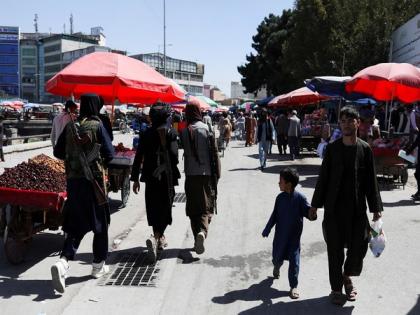Afghanistan's private sector hit hard by political crisis: World Bank
By ANI | Updated: April 9, 2022 18:45 IST2022-04-09T18:36:51+5:302022-04-09T18:45:18+5:30
With one in three businesses temporarily ceasing operations since the Taliban takeover of Kabul in August 2021, Afghanistan's private sector has faced the brunt of the economic devastation that hit the country following the withdrawl of the NATO-led coalition forces, a World Bank finding revealed.

Afghanistan's private sector hit hard by political crisis: World Bank
With one in three businesses temporarily ceasing operations since the Taliban takeover of Kabul in August 2021, Afghanistan's private sector has faced the brunt of the economic devastation that hit the country following the withdrawl of the NATO-led coalition forces, a World Bank finding revealed.
The finding is a part of the Private Sector Rapid Survey conducted by the World Bank in Afghanistan to assess "the impacts of the August 2021 political crisis on private firms and jobs in Afghanistan. "
"The survey, conducted in October-November 2021, finds that the economic activities were substantially affected, and the private sector was hit hard," a World Bank statement said.
The majority of surveyed businesses reported a drastic decline in consumer demand for their products and services and have been forced to scale back operations, reduce investments, and lay off employees, the survey observed.
Small businesses have been hit harder with 38 per cent of surveyed small firms having temporarily shut down, as compared to 25 per cent of medium firms and 35 per cent of large firms.
Women-owned businesses have also been vulnerable with 42 per cent of them having temporarily closed compared to 26 per cent of firms owned by men. Moreover, overall, three-quarters of women workers were laid off from surveyed firms since August 2021.
Notably, about 60 per cent of surveyed men-owned firms reported that security had improved following the cessation of active fighting in the cities, whereas 66 per cent of women-owned firms felt that security had deteriorated.
The agribusiness and wholesale and retail trade sectors have remained relatively resilient with more than 80 per cent of them remaining either fully or partially open.
Most firms are adopting a 'wait and see' approach to decide on their future operations and investments, while some firms expect to be forced to shrink further and may even have to exit the market, the World Bank said.
( With inputs from ANI )
Disclaimer: This post has been auto-published from an agency feed without any modifications to the text and has not been reviewed by an editor
Open in app